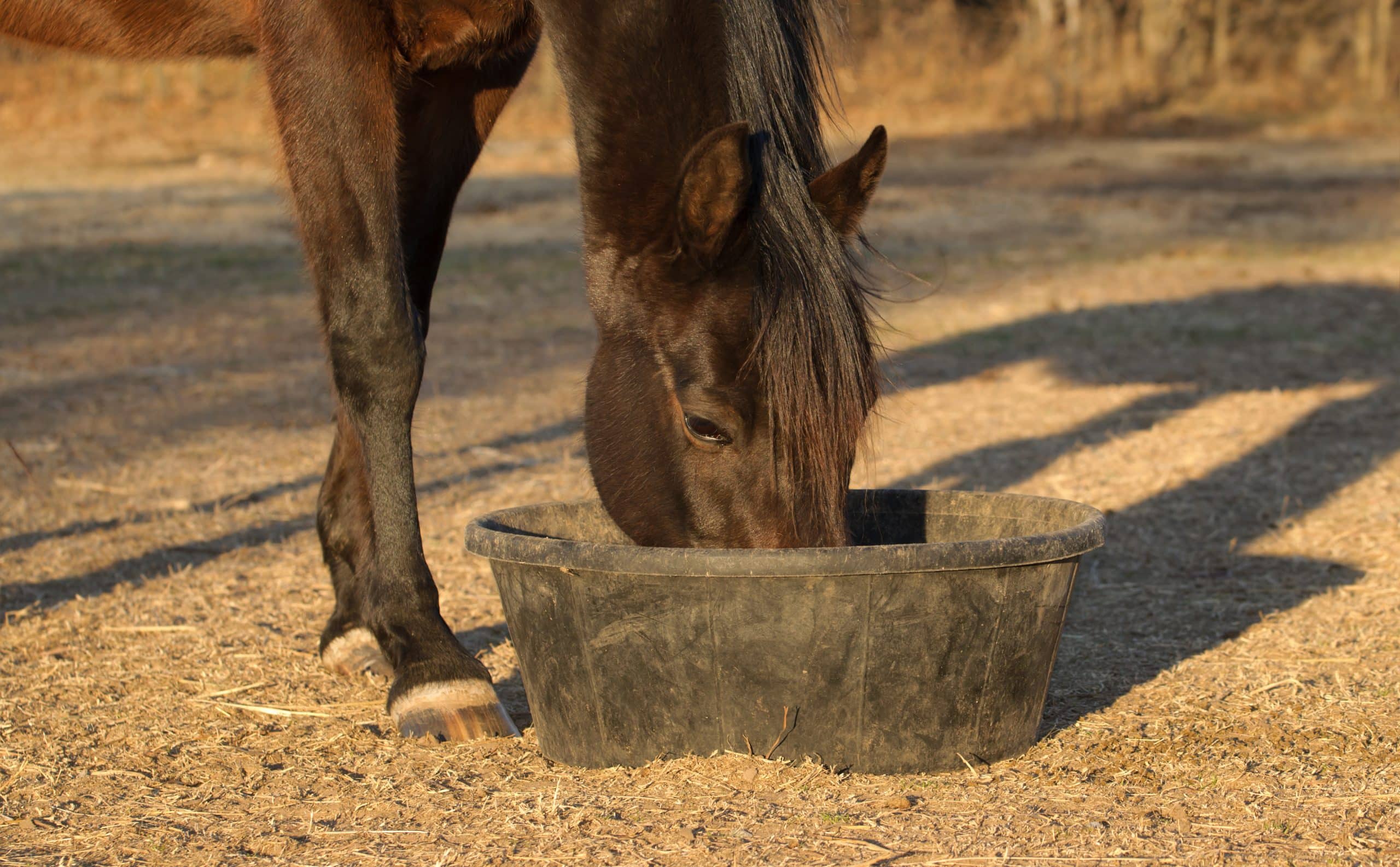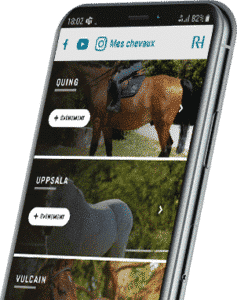Properly controlling your horse’s diet is the key to meeting its energy needs during wintry weather or hot weather. Like any mammal, the horse can regulate its internal temperature according to external conditions. Between 5 and 25°C, the horse’s body does not need to make any effort to maintain its temperature. But beyond this range, the horse will have to use more energy to warm up or cool down. This can lead you to modify his diet.
What to feed your horse in winter?
The horse’s caloric needs increase significantly when the outside temperature drops to around 0°. The thermoregulation of the horse will consume energy, especially if he lives in the meadow. However, grass becomes scarce in pastures from mid-autumn onwards. It is therefore important to feed your horse well in the pasture in winter. Offer your horse a forage diet to meet his energy needs and to keep him in the pasture in winter. Hay is digested in the cecum through microbial fermentation. This is a process that produces heat and warms the horse. Depending on your horse’s age, lifestyle and activity, hay intake may be insufficient. A concentrated feed will be necessary to keep your horse in good condition and avoid the deficiencies that can result from feeding only hay.
Since the horse has a small stomach, it is best not to give him too large a ration. If your horse is already eating a lot of concentrated feed per day, choose a higher energy feed (higher UFc or kg calorie level), rather than increasing rations.
Also, if you decide to increase your horse’s ration, be careful to keep the same activity. Often, winter can make riding difficult. If your horse is at rest during this period, he will necessarily expend less energy. He will not necessarily require a higher ration.
To prevent your horse from using too much energy for thermoregulation, you can protect him from the cold with blankets. Depending on the outside temperature, you can adapt the weight of the blankets. If he lives in the pasture, you can also offer him a shelter in his pasture so that he can protect himself from the cold and get out of the wind and rain.

What to feed older horses in winter?
Particularly old horses will have specific needs compared to younger horses. This is mainly due to their dentition, which can make it difficult to chew dry forage. On the other hand, spring grass is softer and therefore more easily chewed by older horses. The diet of older horses can be modified in winter. For example, by replacing part of the forage with fibrous feed or concentrate feed. If your older horse has great difficulty chewing this type of food, you can wet the ration with water to transform it into a mash, giving preference to “fiber-rich” foods if everything is going well at the dental table. Discover our article on the feeding of senior horses to learn more.
How to adapt your horse’s diet in hot weather?
In hot weather, the horse will regulate its temperature by sweating or increasing its heart rate. As seen before, digestion causes the horse’s body to heat up. In hot weather, it is important to respect the digestion time and to ensure a permanent water supply, including in the paddocks. In case of high heat, you should think of integrating electrolytes in small quantities in the ration to anticipate water losses and avoid imbalances that could directly impact your horse’s performance and its ability to recover.
In summary, to help your horse protect itself from the heat, you can make a shelter for it if it lives in the pasture, shower it regularly to cool it down, and give preference to working at cooler times (early in the morning or at the end of the day). To compensate for the loss of mineral salts in the sweating process, you can offer your horse electrolytes to rehydrate him.



